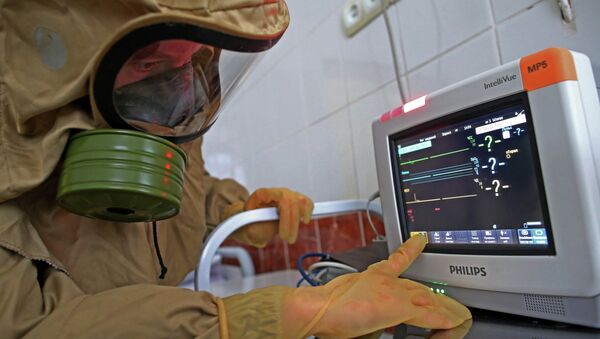“The Centers for Disease Control and Prevention (CDC) has completed an internal investigation of an incident that occurred in December within the agency’s Ebola virus laboratory, which resulted in no illness and was unlikely to have involved an exposure to live Ebola virus,” the statement published on Wednesday read.
In December the CDC reported that small amounts of a live Ebola virus from a CDC experiment was mistakenly given to another test laboratory. However, the CDC said that the technician who handled the Ebola specimen, which was transferred to his office “reported no illness consistent with Ebola,” after 21 days of direct monitoring and that it was “unlikely” a live Ebola virus.
#BREAKING US military's Ebola mission in Liberia coming to an end http://t.co/anI7hYLLhs
— USA TODAY (@USATODAY) 4 февраля 2015
The CDC investigation found that the mistake was a result of a “lack of written study plan approved by a supervisor,” and “a study plan workflow that was not designed to sufficiently minimize the possibility that human error could result in potential exposure.”
Following the incident, “immediate steps were taken to minimize any risks to CDC lab staff and that this incident was reported to appropriate authorities in a timely manner.”
#INFOGRAPHIC Ebola: Timeline of a ruthless killer pic.twitter.com/G7S12ChUvi
— Agence France-Presse (@AFP) 4 февраля 2015
The CDC says that they are in the process of installing cameras in the test laboratory where the incident took place and drawing up “clear instructions” on how materials are to be taken out of high contaminant labs to lower biosafety labs.
Here you can find the latest WHO #Ebola situation report http://t.co/vgRsdukHBW pic.twitter.com/YR7MccSX7P
— WHO (@WHO) 29 января 2015
The current Ebola outbreak began in December 2013 in West Africa. Several countries have intensified their efforts to find a vaccine against the virus, which has already claimed the lives of more almost 8,800 people, according to the latest WHO estimates. The number of cases reported has exceed 22,000.



